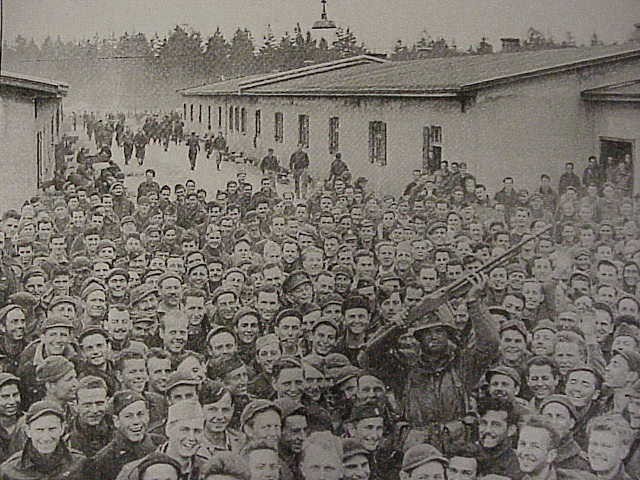During the Second World War, the POW camp Stalag VII-A was one of the better known POW camps run by Germany. Conditions were difficult, as with most POW camps, but one of the reasons that this camp was known better than most is that much of the cruelty incurred by prisoners during WWII did not occur there. While there were still some natural danger such as malnourishment, Stalag VII-A was one of the few camps in which not many prisoners were treated cruelly.
Albert Torchia, like most WWII POWs, had no idea when he enlisted that he would eventually be held captive for months. He was one of many soldiers who helped the Allies to fight their way inland following the invasion of the Normandy beaches. The events which led up to his internment at Stalag VII-A came down to one standoff in particular, during which almost everyone in Torchia’s squadron had sustained injury. At the time, Torchia and his commanding officer still thought there was a chance for escape. Unfortunately, they had not figured on the Germans blowing their way through the house in which Torchia and his comrades were hiding.
When Torchia first arrived at the camp, he was not in particularly low spirits. He saw quickly that he and his comrades were not sustaining the sort of harsh treatments that many other Allied soldiers were prone to in other camps. His main issue with the treatment at Stalag VII-A was the fact that he and his fellows were scarcely fed, and they were not exactly eating balanced meals. They subsisted mostly off of bread and potatoes. Torchia also recalls they were given “grass soup.”
Torchia is able to look back on these memories with something of a light spirit. He recalls that, although they were not fed particularly well, they were not alone. Even the guards at Stalag VII-A were inadequately fed, due to a general wartime shortage of provisions. While he was eventually put to labor, it never happened until he was moved out of the camp. For his duration there, the lack of good food was his only major concern, The Tampa Tribune reports.
After leaving Stalag VII-A, Torchia was made to do farm work. He was able to eat a little bit better, and he gained some of the pounds that he lost during his previous circumstances. While life was not particularly easy for him at either camp, he is able to recall his experiences without getting overly emotional. As far as prison camps go, the circumstances Torchia experienced at Stalag VII-A left him better off than he might have been in many other locations during the war.
